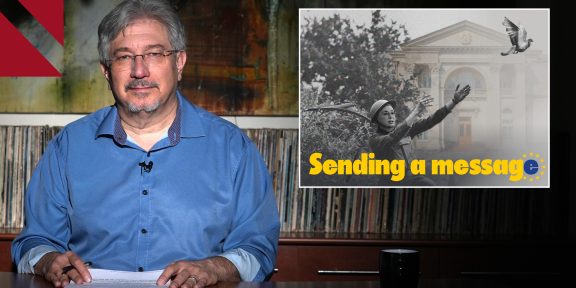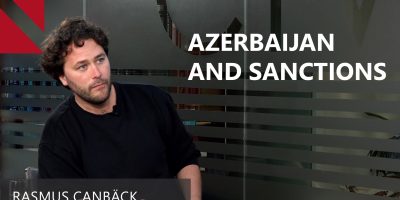By Patrick Аzadian
“But again and again there comes a time in history when the man who dares to say that two and two make four is punished with death.” – Albert Camus, the Plague
There is no better time to be punished for saying two and two make up four than when there is a politically charged atmosphere in a society. The political environment in Armenia today is charged. This statement in itself is a difficult one to make and can illustrate a case in point. First, because in such a polarized environment, the opposing forces in our society and their followers often end up shoving such observations into their tight box of narrow political agenda.
Those who have lost or can still lose power and prestige because of the Velvet Revolution, will jump at every opportunity, grab on to any valid or invalid criticism to discredit the post-revolution government.
This makes the life of the mildest critic of the current government almost impossible. As soon as dissent or a mild criticism is expressed, the crowd of ‘anti-revolutionaries’ adopt the dissident and in the process, discredit him in the eyes of the ‘revolutionaries.’ The criticism loses its effectiveness. The critic and the criticism become tainted.
Next time the critic may think twice before he criticizes the actions or policies of the government.
On the other hand, when a criticism is expressed, whether it is already tainted by the followers of the past regime or it is suspected to be as such, some in the ruling administration go into a defensive shell, and then an offensive charge. Often, the content of the criticism will not be addressed. This is either because of their ultra-sensitivity to criticism, intellectual shortcomings, or because it is much easier to constantly remind people of how bad things were, and how lucky they are to have been freed from the yoke of the Republican Party and the other fellow with no political party to his name. At best, the ‘revolutionaries’ will point to the fact that our society is more democratic than ever and criticism will not be punished by burning the critique’s Lada. While the latter and the former are true in an absolute sense, this type of defense, misses the point and lacks intellectual depth. At worst, the dissident will be directly or indirectly associated with the past regime. It will be implied that after all, why would anyone criticize the revolution unless he is not a ‘counter-revolutionary?’ But still, he will be reminded that there is no danger of getting his Lada set on fire.
Either way, the critic is pacified and shut down by both sides. In such an environment, a ‘man (or woman) who dares to say that two and two make four is punished,’ not by death, but by public shaming of the worst kind by the followers of the polarized extremes of society.
Yet, it is not only the critic who suffers. After all, he can always choose to stay silent and mind his own business as most self-proclaimed intellectuals choose to do these days. The biggest victim of such a polarized atmosphere is the truth. And as poetic as it may sound, when the truth suffers, society loses its only true savior.
On Tuesday, the government announced that due to the spread of the coronavirus in a number of countries, Armenia will deny entry from sixteen countries. The logic behind the list is quite obvious, and maybe too obvious. It seems visitors from countries with a large number of registered coronavirus cases are banned from entering the country. Countries, such as the Netherlands, Belgium, Switzerland, Norway, Denmark and Sweden are on the list, yet others such as the USA, India, the Philippines and Lebanon are missing.
We are naively trusting the integrity of the health system in other countries, when we are taking decisions for the health of the citizens of Armenia
The first problem with this list is that it is based on current number of reported coronavirus cases in the country. What happens if suddenly the USA or India, see a big hike in the reported cases? Of course, the government will lose precious time before they can implement a new ban. Second, these cases are self-reported by the country in question. Are all countries equal in their ability to identify and report cases of the disease? In a way, we are naively trusting the integrity of the health system in other countries, when we are taking decisions for the health of the citizens of Armenia. And last, and probably the most worrisome, where is the actual number of people visiting Armenia from each country factored in the equation that determined who should be banned from entry? How many citizens of Norway actually visit Armenia and how many citizens of India or USA visit Armenia, for example? The absolute number of visitors from a country to Armenia is important and missing from the ‘formula’ that the government used to determine who should be banned and who can ‘cross the border.’ Moreover, how can the government explain the lack of ban or the absence of mandatory quarantine for some arrivals from Italy when visitors from Iran, a country with similar coronavirus statistics to Italy, were already temporarily banned to enter Armenia? This possible lapse in judgement, may have been responsible for a good number of coronavirus cases in Armenia.
Sadly, the discussions on the issue of how the government has handled the current endemic has already become political. On one side, there are those who think the government has done everything wrong, and on the other, there are those who don’t lose an opportunity to praise the government for its actions.
Again, in such a polarized environment, the truth, and ultimately the interests of the citizens suffer. This is a case in point where national interests can take a back seat to settling scores and seeing every discussion and disagreement through the lens of the past. I would imagine, there are those who still identify themselves with the forces of the past and are still bitter about losing their status. Expecting them to diffuse the existing polarized environment may be a tall order. The onus is on those who are in power and have received the mandate of the majority of citizens to drop their defense mechanism and find ways to create an environment where issues are argued based on their merit and not on who has raised the issue, even if that could mean less joy in drawing comparisons to the past.
In the meantime, the endemic may grow before the curve flattens and some policy mistakes may be inevitable. But, being open and respectful to criticism, regardless of who is the critic, may give the authorities room to ponder before making policy and minimize the chances of possible mistakes. It is also the only way to make a clean break from the past and test our ability as members of this society to truly listen to each other.
















